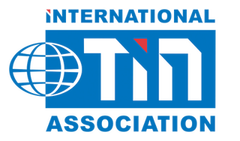
November 2021
Annual Progress Report Metals 2020-2021
Collective Actions and Upscaling
The parties committed to undertake collective actions to address identified and prioritised systemic risks in the industry supply chain and to encourage other relevant organisations to sign the Metals Agreement. The working group on collective actions and upscaling is responsible for internal and external communications, execution of collective projects, and collaboration with other International RBC Agreements.
Outreach
The most important goals under this theme were to increase the number of companies to sign the Metals Agreement to twenty. To reach this goal, the working group developed an outreach strategy which included organising a physical information and network session for potential new parties, looking for opportunities at external industry events to create awareness about the Metals Agreement, and reaching out to a list of relevant actors in the metals supply chain developed in the previous year. Despite these efforts, the target of increasing the total number of member companies to 20 was not reached. At the end of Agreement year 2 (June 2021), there were 11 signatory companies to the Metals Agreement.
Due to COVID-19 and the continued restrictions on physical meetings, the information and network session was put on hold. The working group looked for promotional opportunities online such as industry organisation conferences, events, or webinars to speak to large audiences about the Agreement. Two of such opportunities were the LME Week 2020 and the 14th OECD Forum on Responsible Mineral Supply Chain. Regrettably, the LME Week was cancelled, and due to several factors, one of which was time constraints, representation in panel discussions during the OECD Forum on Minerals was not possible. However, a party to the Agreement CNV International, hosted a side-session on outsourcing in Peru, Colombia, and Bolivia with the participation of another Metal Agreement party, Nyrstar, and a presentation by the Secretariat project lead for the Metals Agreement. The working group also organised a webinar for members of one of the supporting organisations, FME Dutch Technology Association.
In order to reach out to as many companies as possible in the metals sector, the working group, with the approval of the Steering Committee, recruited an outreach ambassador to assist with outreach efforts. Physical and online meetings with potential new companies were attended by the ambassador, the Secretariat, and occasionally, a member of the working group. The result was a lot of interest in the Metals Agreement with three companies confirming verbally their willingness to sign the Metals Agreement. The working group will continue to follow up on outreach activities in the third year.
Other significant activities and achievements include:
- The publication of ‘stories of change’ by parties highlighting their activities with regards to international responsible business conduct, the role of the Agreement in their organisation processes, and/or lessons learned.
- The update of external communication tools such as the brochure and the website
- The development of a script for an outreach video for use on the website, by parties, and at industry events, conferences, and on social media platforms.
New companies
5 new companies joined the Metals Agreement, bringing the total number of companies from 7 to 11 at the end of the second year. One company - Hunter Douglas - left the Agreement because the company stopped using metals. The new companies are; Nyrstar Netherlands, A&M Recycling | In2Waste Solutions, Krommenhoek Metals, Smart-M, and Gooimeer.

Kay Nimmo, Head of Sustainability, International Tin Association Ltd
“As an industry leader on responsible sourcing, ITA is excited to partner with the Metals Agreement and work towards our common goal of driving progressive and harmonized social, environmental & governance standards in the metals sector. In the last decade ITA has innovated multiple due diligence solutions for tin, including the ITA Code of Conduct sustainability reporting tool, to international standards. In Year 2 we look forward to deepening our collaboration with the Metals Agreement, including learning through the implementation of International Responsible Business Conduct tools and leveraging our collective positions and expertise to transform metal supply chains from mining to recycling”.
